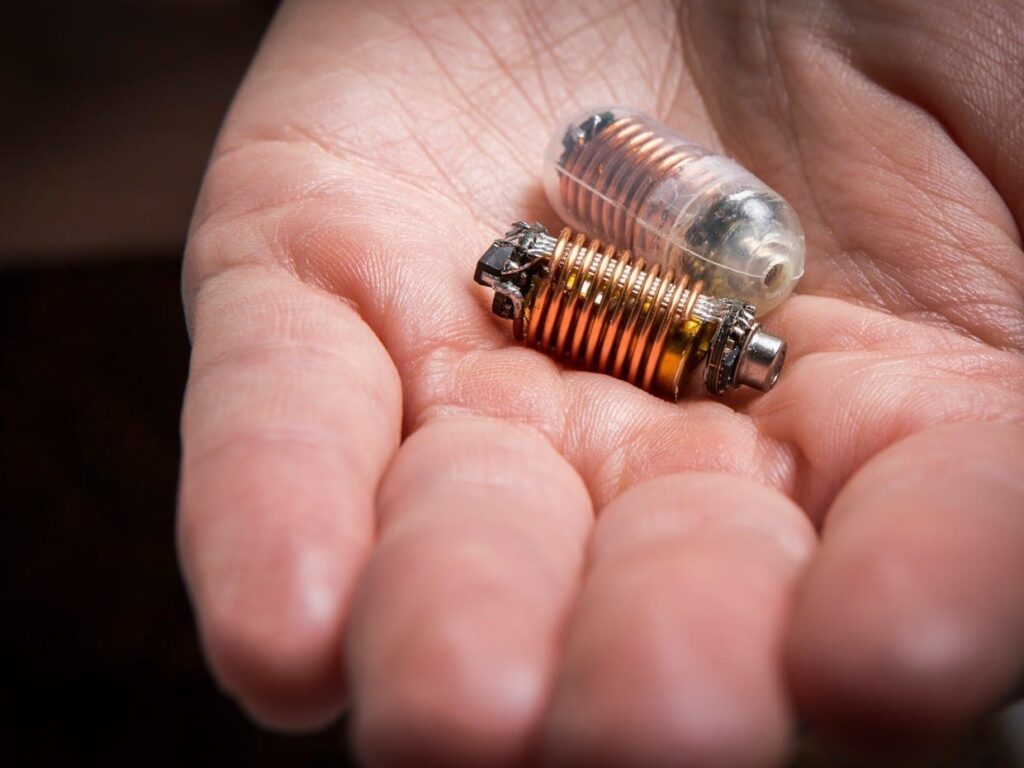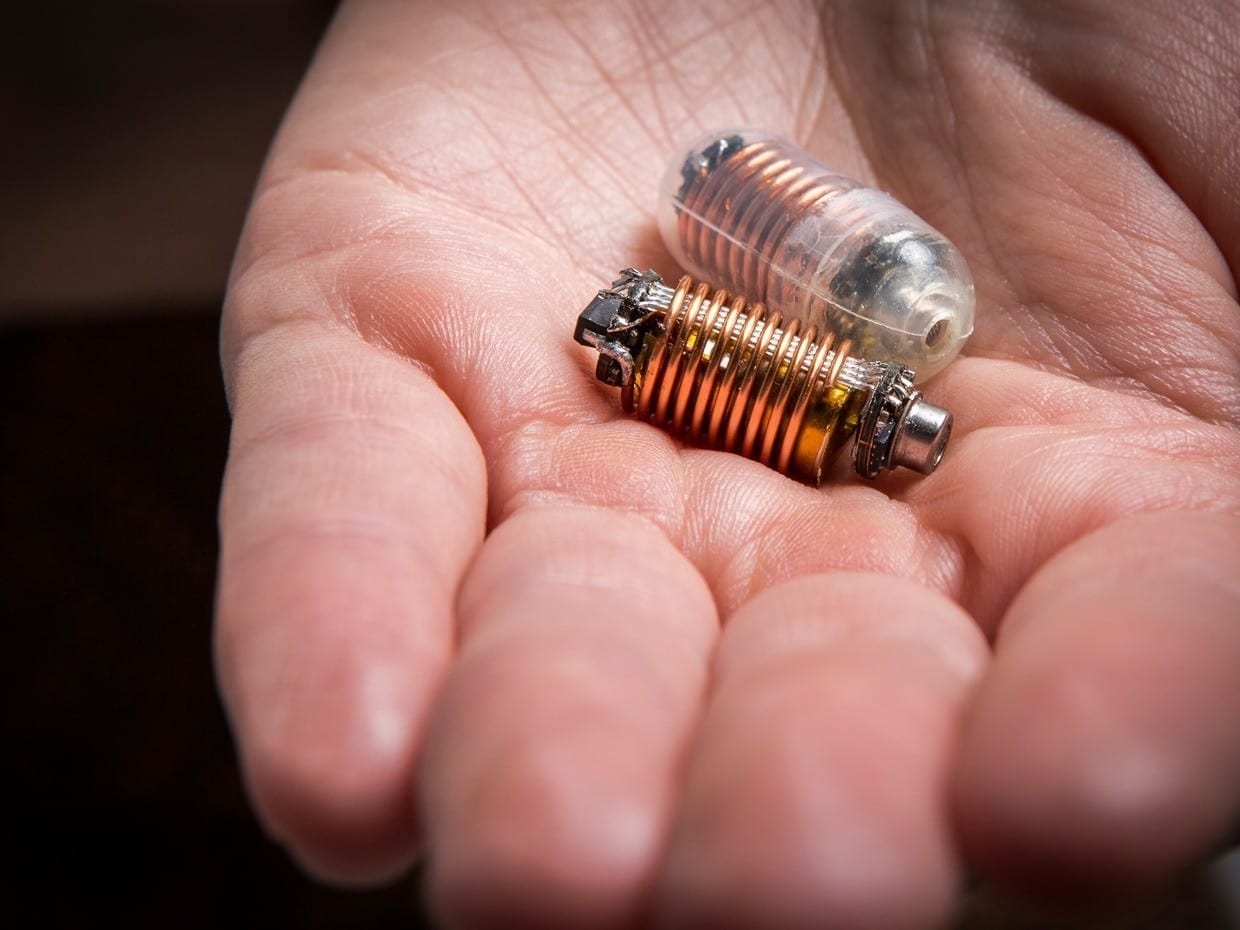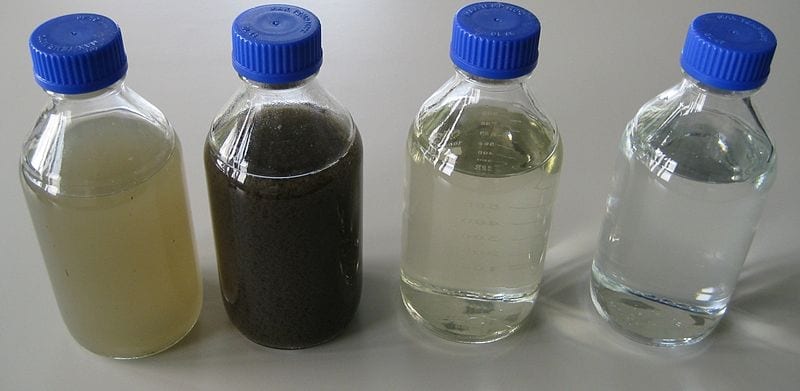
New trials of a breakthrough swallowable sensor have revealed the device is 3,000 times more accurate than current technology used to diagnose many gut disorders.
The findings show the revolutionary gas-sensing capsule developed by researchers at RMIT University could surpass breath testing as the benchmark for diagnosing gut disorders, paving the way to solving previously undiagnosed conditions.
The vitamin pill-sized capsule, currently being commercialised by Atmo Biosciences, provides real time detection and measurement of hydrogen, carbon dioxides and oxygen in the gut. This data can be sent to a mobile phone.
Capsule co-inventor, RMIT’s Dr Kyle Berean, said the second human trials have revealed information about gas production in the gut previously masked when measured indirectly through the breath.
“The rate of false positive and false negative diagnosis that breath tests give is a real problem in gastroenterology,” Berean, who is also Chief Technology Officer at Atmo Bioscience, said.
“Being able to measure these biomarkers at concentrations over 3,000 times greater than breath tests is quite astonishing.
“Importantly this test is non-invasive and allows the patient to continue with their daily life as normal.”
Intestinal gases are currently used to diagnose disorders including small intestinal bacterial overgrowth (SIBO) and carbohydrate malabsorption.
Of the one-in-five people worldwide who will suffer from a gastrointestinal disorder in their lifetime, almost a third remain undiagnosed due to a lack of reliable tests available to gastroenterologists.
Study lead and capsule co-inventor Professor Kourosh Kalantar-zadeh said the results showed high sensitivity and signal-to-noise ratio in measuring the concentration of intestinal hydrogen, providing valuable information at the site of intestinal gas production.
“This gives us confidence that our new technology could potentially solve many mysteries of the gut and help the large portion of the population who have not been able to find a useful diagnosis or treatment for their symptoms,” Kalantar-zadeh said.
Findings from the first human trials revealed the stomach releases oxidising chemicals to break down and beat foreign compounds that are staying in the stomach for longer than usual. Such an immune mechanism has never been reported before.
This second paper made a direct comparison between measuring hydrogen production within the gut via the gas-sensing capsule and indirect measurement through breath testing.
Trials were conducted on nine healthy individuals in a blinded comparative study on absorbable versus fermentable carbohydrates.
Melbourne based start-up Atmo Biosciences is set to commercialise this revolutionary technology.
Learn more: Gas sensing gut pill beats breath test diagnosis
The Latest on: Gas-sensing capsule
[google_news title=”” keyword=”gas-sensing capsule” num_posts=”10″ blurb_length=”0″ show_thumb=”left”]
via Google News
The Latest on: Gas-sensing capsule
- Best Charcoal Grills of 2024 to Elevate Your Backyard BBQson May 8, 2024 at 8:00 am
We've been perfecting the art of grilling ever since with the best pellet grills, gas grills, smokers, and even portable grills. The best grills of today would shock our survivalist predecessors.
- Laser and Fiber Optic Gas Absorption Spectroscopyon May 6, 2024 at 11:43 am
p. 19. An invaluable text for the teaching, design, and development of gas sensor technology. This excellent resource synthesizes the fundamental principles of spectroscopy, laser physics, and ...
- Swallowable sensor unfurls in stomach to monitor gut healthon May 6, 2024 at 2:00 am
A ribbon of electrodes could nestle in the gut to help diagnose gastrointestinal diseases linked to Parkinson’s ...
- Gas Sensing for Refrigerationon April 22, 2024 at 4:59 pm
Refrigeration and other cooling systems can have a large impact on both energy usage and emissions, particularly in warmer climates. While dangerous CFC gases are no longer used, an inefficient or ...
- Gas Sensor Market to Reach USD 6.05 Billion by 2031 Driven by Miniaturization, Wireless Capabilities, and Stringent Regulationson April 18, 2024 at 5:00 pm
According to SNS insider Report the Gas Sensor Market size expected to reach USD 6.05 billion by 2031 with the growing CAGR Of 9.86 % over the forecast period of 2024-2031. These advancements enable ...
- Using gas sensors in the medical and healthcare industrieson January 13, 2024 at 5:55 pm
Cubic has dedicated more than 18 years’ of its research and development efforts to meeting the stringent gas sensing (quantity and quality) needs of medical and healthcare applications.
- Smart Sensors for Gas Detectionon April 15, 2021 at 10:43 pm
Protect workers and equipment at oil and gas plants. Gas detection systems are meant to protect workers in oil and gas plants by warning them if there is a toxic or combustible gas leak. Smart sensors ...
- Gas Instruments Informationon February 8, 2018 at 10:54 am
Specifications for gas instruments are first what type of gas the application requires sensing and second how many channels the instrument needs to sense through. This can be for multiple types of gas ...
- Gas detecting pill could diagnose poor gut healthon January 22, 2018 at 4:00 pm
The capsule can measure gas levels and transmit this information to a mobile phone app. The researchers hope that their sensor will provide unprecedented levels of information to better diagnose ...
via Bing News










